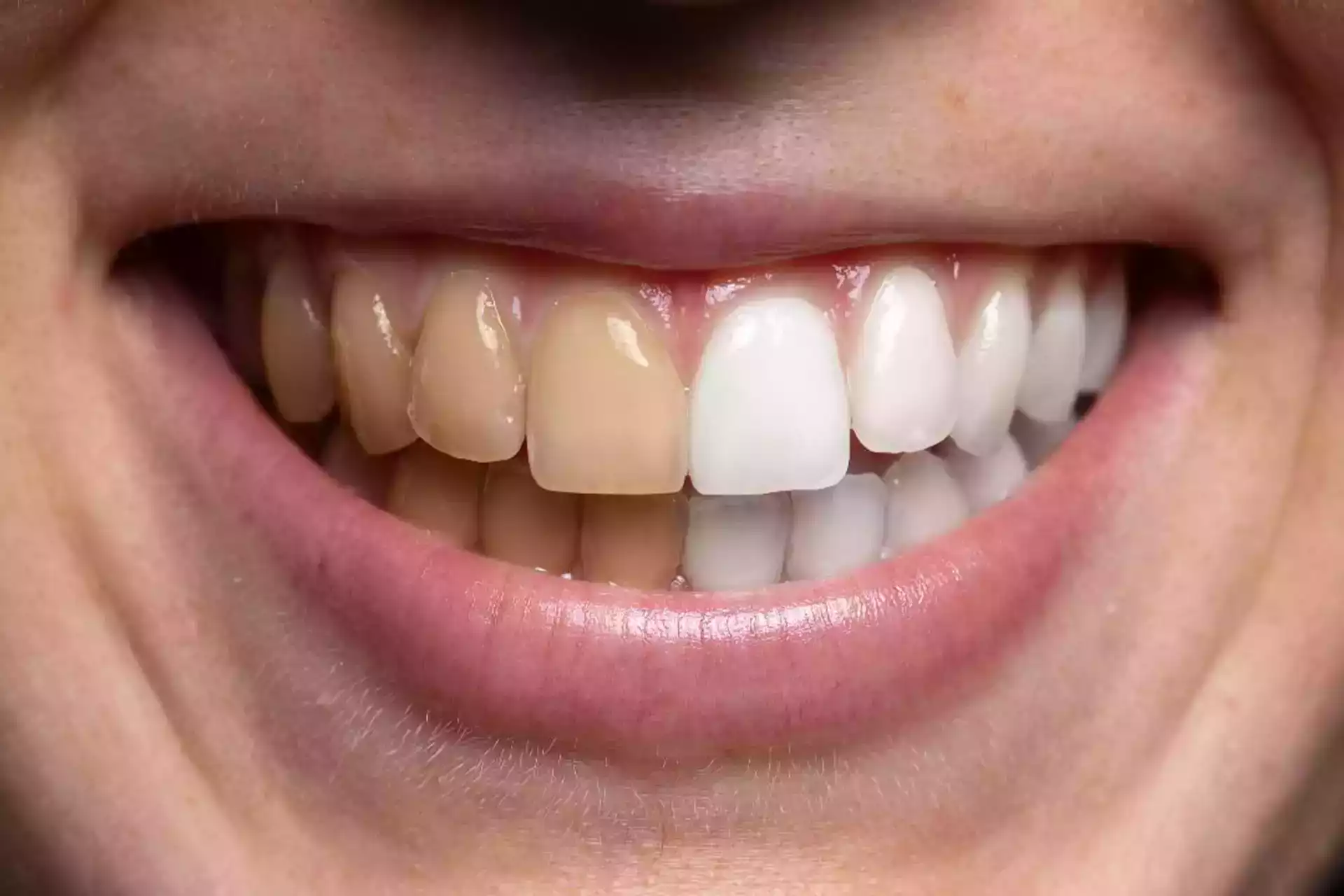At one point in our lives, we’re likely to experience stained teeth. But stained teeth aren’t necessarily a result of poor dental hygiene, but instead can be a result of our food and drink choice or something completely different.
Whilst stained teeth are hard to avoid completely, there are some ways you can reduce tooth discoloration without thinking too hard about it. Here, we’re taking a closer look at the main causes of stained teeth and how to fix them.
Types Of Teeth Stains
When it comes to stained teeth, it’s important to have an understanding of the types of teeth stains to identify what you may be doing wrong when it comes to keeping your teeth in top condition. There are 3 key types of teeth stains which are extrinsic teeth stains, intrinsic teeth stains and age-related teeth stains which we explain more about below.
- Extrinsic Teeth Stains
Starting with extrinsic teeth stains, this type of stained teeth occurs when tooth enamel is stained by lifestyle-related choices such as the food and drink we consume and smoking. Generally speaking, this type of stain causes a yellow-like discolouration to the tooth which may worsen overtime if habits fail to change.
- Intrinsic Teeth Stains
Intrinsic teeth stains, however, occur on the inside of the tooth. Like extrinsic teeth stains, intrinsic teeth stairs carry a yellow-like appearance which may also darken. This type of stained teeth commonly occurs because of injury, trauma and sometimes medication, making them much more complex to remove.
- Age-Related Teeth Stains
Finally, age-related teeth stains are a mixture of both extrinsic and intrinsic factors that occur over time. As we age, our tooth enamel naturally becomes less dense, sometimes enabling the yellow dentin below to begin to show through causing yellowish discolouration to occur on the tooths surface more prominently.
What Causes Teeth Stains?
There are many everyday factors in our everyday lives that knowingly and sometimes unknowingly contribute to stained teeth. Whilst some can be prevented, others are unfortunately out of your control, encouraging the need for good oral hygiene throughout the year.
Food & Drink
Food and drink are both a key factor of stained teeth, with many of us not even questioning how the food or drink we are consuming may be impacting our oral care. Popular beverages such as coffee, tea and fizzy drinks all contribute to stained teeth in addition to some dark coloured fruits such as cherries, blackberries, and pomegranates.
Smoking
Smoking is another prominent factor leading to stained teeth as a result of the nicotine and tar percolating in the tooth’s enamel. Because of this, smoking can make teeth yellow in a very short period and, though removable, can do further underlying damage to the teeth such as contributing to the development of gum disease which may lead to later tooth loss.
Poor Oral Care
Each time you visit the dentist you are likely asked how many times you brush your teeth in a day and how often you floss in addition to the volume of alcohol and fizzy drinks you consume. This isn’t to be intrusive, but to determine your dental hygiene and the impact it’s having on your teeth. A build-up of plaque, for example, because of a lack of flossing or poor brushing may cause unwanted discolouration that can be easily rectified.
Medication
Some medical treatments, such as the medication prescribed to treat high blood pressure or chemotherapy, may also have an impact on your teeth causing unwanted stains. Many of which will state this as a side effect of consuming the medication, helping you to identify the source of your yellow teeth.
How To Remove Stains
Regardless of what caused your stained teeth, teeth whitening is the ideal way to bring back your bright white smile. When carried out by a professional, teeth whitening involves using a combination of hydrogen peroxide or carbamide peroxide in specific amounts to whiten the teeth over time.
The gel will pass through the tooth’s dentin, interacting with the stains on the tooths surface to break down their chemical bonds and cause them to break away from the tooth, leaving you with a brighter result after each application or visit.
Unlike over-the-counter tooth whitening methods, professional bleaching results can last up to 3 years and is the safest approach to achieving the perfect set of white teeth, helping to maintain tooth sensitivity so you can continue to enjoy all of your favourite foods and drinks without discomfort.
If you would like to find out more about the teeth whitening options available and view examples of previous patients teeth we have worked with, book a free consultation today.
